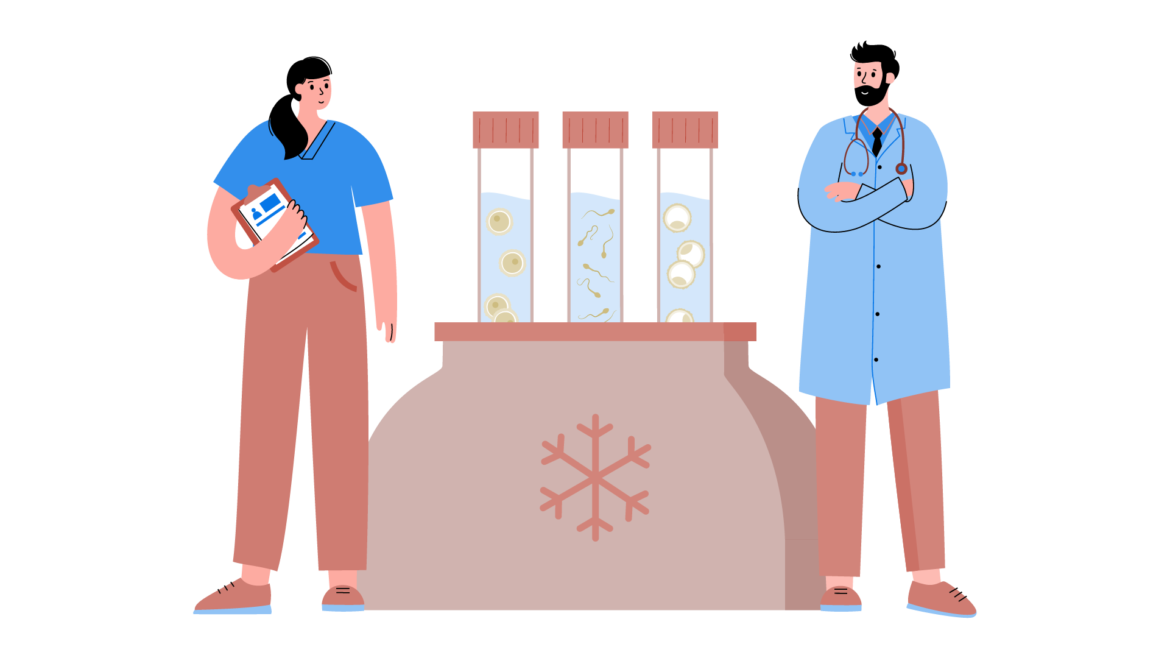Cryopreservation refers to the method of cooling and preserving cells, tissues, organs, or other biological materials at very low temperatures for extended periods to maintain their viability and functionality.
Eggs, sperm, or embryos can be frozen and stored in a controlled environment in order to preserve their cells for future use.
Common Circumstances where cryopreservation is used
- To preserve fertility before cancer treatment: People who have been diagnosed with cancer and are going for chemotherapy or radiotherapy may choose cryopreservation to safeguard their fertility because treatments like chemotherapy may harm fertility.
- Cryopreservation is often used as part of infertility treatments like IVF or ICSI. In cryopreservation, embryos, sperm, or eggs can be frozen and stored for future use, It allows couples to undergo treatment cycles without repeating ovarian stimulation or sperm retrieval procedures.
- Treatments like vasectomy, testicular surgery, or other procedures could cause temporary or permanent infertility. Men undergoing these treatments can opt for cryopreservation.
Some Limitations of Cryopreservation
- Preserving cells at very low temperatures can cause genetic drift due to a change in cell-associated lipids and proteins
- A high concentration of cryopreservation agents can harm preserved cells
The information provided here is only general information. It is not intended to be a substitute for expert medical guidance. Always consult your doctor for advice and the right information for specific conditions.
Disclaimer


